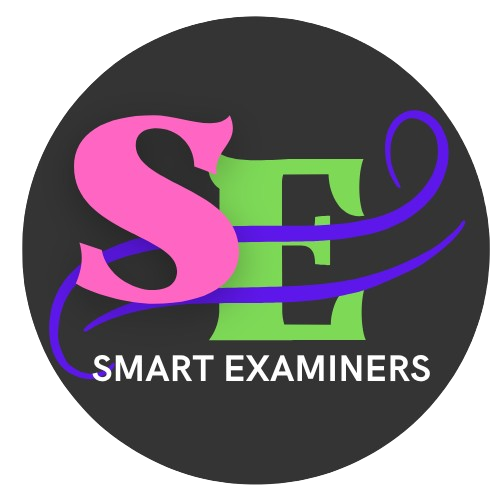How to Study Faster and Smarter for Exams
Introduction
Preparing for exams can be a daunting task, especially when time is limited. However, by adopting effective study strategies, you can enhance your learning efficiency and achieve better results. This comprehensive guide will explore proven methods to help you study faster and smarter, ensuring you're well-prepared for your exams.
1. Set Clear, Achievable Goals
Begin by defining what you aim to accomplish in each study session. Clear goals provide direction and motivation. For instance, instead of a vague objective like "study biology," specify "understand the process of photosynthesis and complete five related practice questions."
2. Develop a Structured Study Plan
Organize your study material by creating a detailed plan:
-
Prioritize Subjects: Focus on subjects or topics that you find most challenging.
-
Allocate Time Slots: Dedicate specific time blocks to each subject, ensuring balanced coverage.
-
Set Deadlines: Assign deadlines for completing each topic to maintain accountability.
A structured plan helps in tracking progress and ensures comprehensive coverage of all subjects.
3. Utilize Active Learning Techniques
Active learning involves engaging with the material beyond passive reading. Techniques include:
-
Summarization: Write concise summaries of topics in your own words.
-
Teaching Others: Explain concepts to peers or even to yourself to reinforce understanding.
-
Application: Solve problems or apply concepts to real-world scenarios.
These methods promote deeper comprehension and retention of information.
4. Practice Retrieval Through Self-Testing
Regular self-testing enhances memory and identifies areas needing improvement. Methods include:
-
Flashcards: Create flashcards for key concepts and quiz yourself.
-
Practice Exams: Take timed practice tests to simulate exam conditions.
-
Question Banks: Use question banks to test your knowledge on various topics.
Self-testing not only assesses your knowledge but also reinforces learning.
5. Embrace the Spaced Repetition Technique
Spaced repetition involves reviewing information at increasing intervals over time, which strengthens memory retention. Tools like SmartExaminers can assist in scheduling these reviews effectively, ensuring optimal recall during exams.
6. Optimize Your Study Environment
A conducive study environment minimizes distractions and enhances focus:
-
Quiet Space: Choose a quiet, comfortable location dedicated to studying.
-
Organized Materials: Keep all necessary materials within reach to avoid interruptions.
-
Digital Discipline: Limit access to social media and other digital distractions during study sessions.
An optimized environment fosters concentration and productivity.
7. Leverage Technology and AI Tools
Incorporate technology to streamline your study process:
-
Digital Notes: Use apps to organize and search your notes efficiently.
-
Online Resources: Access tutorials, lectures, and forums for diverse perspectives.
-
AI-Powered Tools: Platforms like SmartExaminers provide instant, accurate answers to exam questions, aiding in efficient study sessions.
Integrating technology can enhance learning and save valuable time.
8. Engage in Collaborative Learning
Studying with peers can offer new insights and clarify doubts:
-
Study Groups: Join or form study groups to discuss and review material collaboratively.
-
Peer Teaching: Explaining concepts to others reinforces your understanding.
-
Diverse Perspectives: Exposure to different viewpoints can deepen comprehension.
Collaborative learning leverages collective knowledge for mutual benefit.
9. Prioritize Health and Well-being
Your physical and mental health significantly impact study efficiency:
-
Adequate Sleep: Aim for 7-9 hours of quality sleep to enhance cognitive function.
-
Balanced Diet: Consume nutritious meals to fuel your brain.
-
Regular Exercise: Engage in physical activity to reduce stress and improve focus.
Maintaining health ensures you're in optimal condition for studying.
10. Implement Mindfulness and Stress Management
Managing stress is crucial for effective studying:
-
Mindfulness Practices: Techniques like meditation can enhance focus and reduce anxiety.
-
Scheduled Breaks: Incorporate regular breaks to prevent burnout and maintain productivity.
-
Positive Mindset: Cultivate a positive attitude towards studying and exams.
Effective stress management contributes to better performance and well-being.
11. Customize Your Study Approach
Recognize that everyone has unique learning preferences:
-
Identify Learning Style: Determine if you're a visual, auditory, or kinesthetic learner and tailor your methods accordingly.
-
Adapt Strategies: Be flexible in adjusting techniques to find what works best for you.
-
Seek Feedback: Reflect on your progress and seek feedback to improve your approach.
Personalizing your study methods enhances effectiveness and engagement.
12. Utilize Past Exams and Practice Questions
Practicing with previous exam papers familiarizes you with the format and types of questions:
-
Identify Patterns: Recognize commonly tested concepts and question styles.
-
Time Management: Practice completing exams within the allotted time to improve pacing.
-
Self-Assessment: Evaluate your performance to identify strengths and areas for improvement.
Regular practice with past exams builds confidence and competence.
13. Stay Organized and Manage Time Effectively
Effective time management prevents last-minute cramming and reduces stress:
-
Set Priorities: Focus on high-impact activities that yield the most significant results.
-
Avoid Procrastination: Tackle challenging subjects first to alleviate anxiety.
-
Use Timers: Implement techniques like the Pomodoro method to maintain focus and structure study sessions.
Organizational skills are key to efficient and productive studying.
14. Seek Clarification and Assistance
Don't hesitate to seek help when needed:
-
Consult Instructors: Approach teachers or professors for clarification on complex topics.
-
Tutoring Services: Utilize tutoring resources for personalized assistance.
-
Online Forums: Engage in online communities for diverse explanations and insights.
Seeking help ensures you fully understand the material and can address any gaps in knowledge.
15. Reflect and Adjust Your Study Methods
Regular reflection on your study practices allows for continuous improvement:
-
Evaluate Effectiveness: Assess which techniques are yielding results and which are not.
-
Be Open to Change: Adapt and experiment with new strategies to find the most effective approach.
-
Set New Goals: As you progress, set new objectives to continue advancing.
Continuous reflection and adjustment lead to sustained academic success.
Conclusion
Studying faster and smarter requires a combination of strategic planning, active engagement, and self-care. By implementing the methods outlined above, you can enhance your learning efficiency and perform better in your exams. Remember, tools like SmartExaminers can further streamline your study process by providing instant, accurate answers, allowing you to focus on mastering the material. Embrace these strategies, stay committed, and approach your studies with confidence and determination.
 SmartExaminers
SmartExaminers


